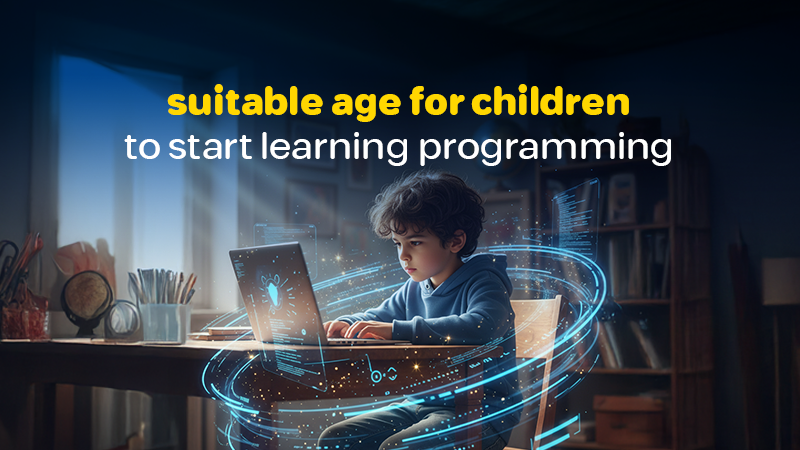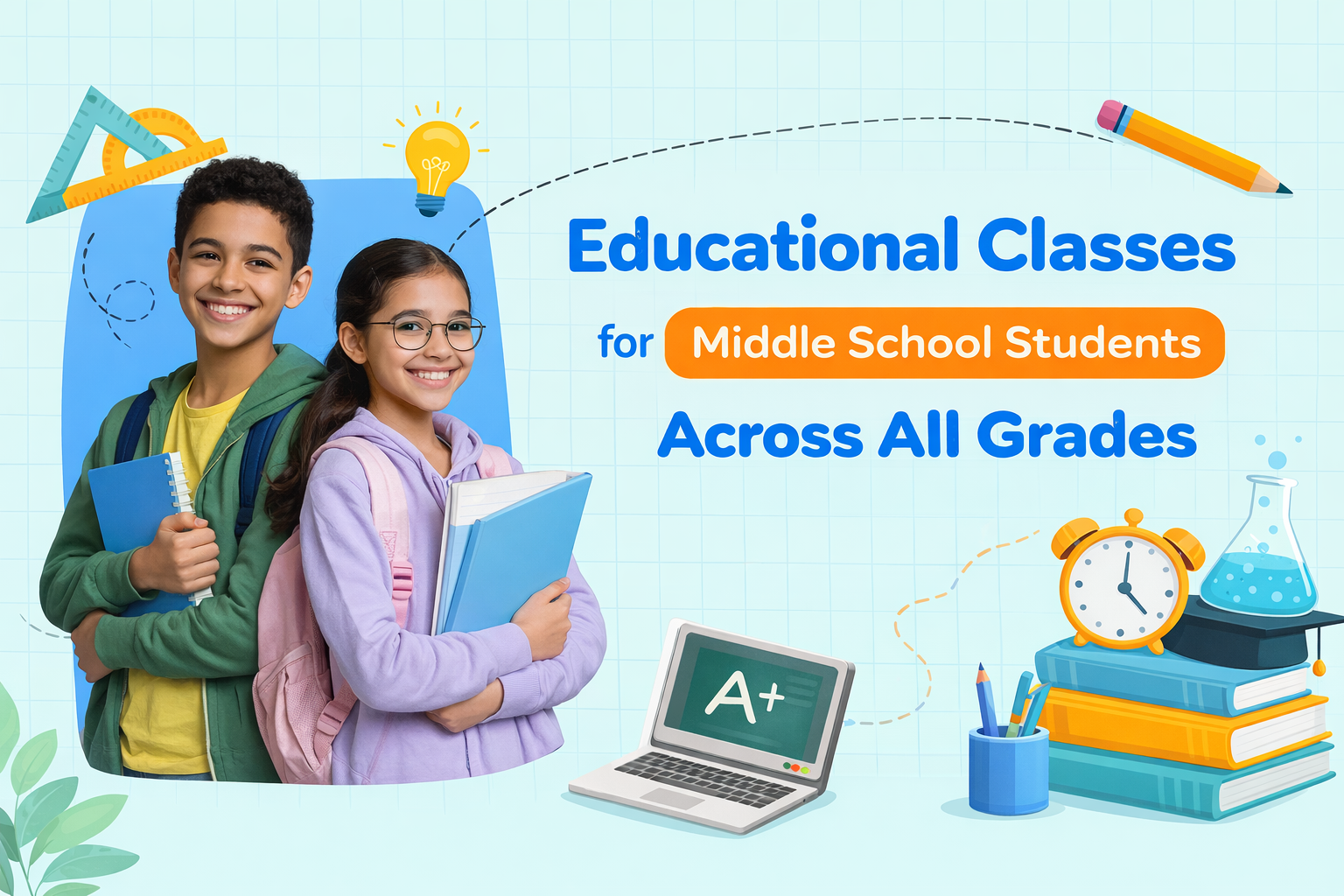
Parents often wonder when the right time is to introduce their children to coding. With technology shaping every aspect of our lives, programming is no longer a skill reserved for specialists—it’s becoming a new universal language that every child should learn.
Studies show that introducing coding early on boosts children’s cognitive and creative abilities, helping them develop confidence to face future challenges. But when exactly should they start? And how can curricula be tailored to suit each age group and integrated into kids after-school activities? Let’s break it down.
Why Coding Is One of the Most Important Skills Your Child Can Learn Today
Coding isn’t just an extra activity—it’s a key building block for your child’s development. According to the World Economic Forum, 65% of children currently in primary school will end up in jobs that don’t exist yet most of them related to technology and programming.
Research from Code.org also shows that students who start coding early are 30% more likely to excel in math and science. The reason is simple: coding trains the brain to think logically, break complex problems into smaller parts, and find practical solutions.
Beyond academics, coding helps kids become creators of technology, not just consumers. Instead of spending hours playing games, they can design their own—or even build apps that solve real problems they care about.
Age 6: Fun Lessons and Playful Activities to Learn the Basics
You might think age six is too early to start coding but, research says otherwise. Children at this age learn best through play, visuals, and storytelling.
At iSchool, we introduce coding to young learners using engaging tools like:
- Scratch Jr – a colorful, visual platform where kids can animate characters and create short stories or games.
- Interactive Storytelling Activities – children learn to move cartoon characters or build short visual stories using simple coding blocks.
These activities teach fundamental programming concepts like sequencing, repetition, and cause-and-effect (“If this happens, then do that”). Kids see them as games—but in reality, they’re taking their first steps into the world of coding.
💡 For example: one of our 6-year-old students created a simple game where a cat collects stars after just eight sessions! For her, it was playtime. For us, it was the beginning of something amazing.
Ages 7–10: Structured Learning That Builds Real Coding Skills
By this age, kids are ready to handle more structured lessons and real coding logic. We start moving from playful activities to simplified programming languages.
At iSchool, we introduce:
- Scratch – for designing bigger, more creative projects like educational games and interactive presentations.
- Python (simplified version) – to help children understand how humans communicate with computers through code.
This stage develops essential skills such as:
- Problem-solving using structured steps
- Computational thinking
- Working on small team or individual projects
📊 A study by Oxford University found that kids who learned Python early improved their problem-solving skills by 40% compared to their peers.
Ages 11–14: Hands-On Projects That Prepare Kids for the Digital Future
As children enter early adolescence, they start craving more practical, real-world experiences. Advanced coding gives them the chance to create projects they can proudly showcase.
In this stage, our curriculum includes:
- JavaScript – to build interactive websites
- Advanced Python – for developing more complex apps and games
- Real-world projects – such as calculators, educational games, or personal web pages
Research shows that hands-on experience makes a lasting difference. According to Code.org, students who worked on real coding projects at age 13 were 70% more likely to pursue STEM fields later in university.
How iSchool Designs Age-Appropriate, Accredited Curricula
At iSchool, we use globally accredited curricula adapted for the Arab region and designed around how children learn best.
- We start with simple, visual activities for younger learners
- Gradually introduce real programming languages as they grow
- Offer different learning paths: Game Development, Web Development, and Artificial Intelligence for advanced students
Our approach goes beyond technical skills. Every instructor is trained to nurture curiosity, confidence, and teamwork, ensuring that each session is both educational and emotionally supportive.
Why Parents Choose iSchool: Expert Teachers, Interactive Classes & Real Progress Tracking
While many platforms offer coding for kids, iSchool stands out because of its balanced blend of education, engagement, and follow-up:
- Specialized teachers trained in simplifying complex coding ideas for children
- Live, interactive online classes where kids learn with real teachers and peers
- Parent progress reports to track growth, strengths, and areas for improvement
- Hands-on projects so kids learn by doing, not memorizing
More than 85% of parents who enrolled their children in iSchool noticed a clear boost in their child’s confidence, problem-solving ability, and even school grades.
Enroll Your Child in iSchool and Start Their Coding Journey Today
iSchool has helped hundreds of children across Egypt and the Arab world turn their after-school time into a fun and meaningful learning experience from 6-year-olds creating their first animated stories on Scratch Jr to teens building real apps.
Start your child’s journey today with iSchool, and open the door to a future full of opportunities.
The digital world is moving fast, every day counts in building a generation that’s more creative, confident, and ready for the future.
Sign up your child today and give them a head start that will last a lifetime.
Yes, a 6-year-old can pick up coding skills. For extremely young children, reading and typing skills might be a barrier to learning how to code, which can be particularly difficult for those under the age of six. iSchool classes, however, deal with this issue by introducing programming through MIT Scratch and other user-friendly drag-and-drop languages. This strategy enables children to explore the core ideas of coding through engaging and interactive learning techniques.
The difficulty of learning to code varies depending on when, where, and how you learn. However, it is critical to distinguish between simply knowing the fundamentals and genuinely comprehending and utilizing the numerous coding ideas that open the door to limitless possibilities. Our workshops are intended to inculcate in children an appreciation for the beauty of creating their own software as well as to illuminate the seemingly unlimited possibilities that coding expertise may open up.
Your child does not need to be a math prodigy to excel at coding, though they will find it easier to learn if they are. Coding can even improve their academic achievement in subjects like math and English. We stress the development of creativity, logical reasoning, and analytical thinking in our courses, which are critical components for developing robust software, and these talents take precedence over a strong math background.
By demonstrating to kids the power of coding as a tool for letting their imaginations run wild and creating their own enchanted worlds, we aim to inspire them. In addition to teaching the benefits of programming, our courses also promote creativity and self-assurance. We accomplish this by utilizing interesting and interactive programming languages, such as MIT Scratch. Our lessons at iSchool cover a wide range of subjects, such as cartoons, music, painting, storytelling, and much more.
It is best to introduce coding to children through relatable, practical examples such as games, cartoons, and music. Our classes focus on teaching children how to code through the creation of simple games or the use of cartoon characters. These are some examples: Coding for Animation and Storytelling , Art & Music Coding and Game Logical Programming.





